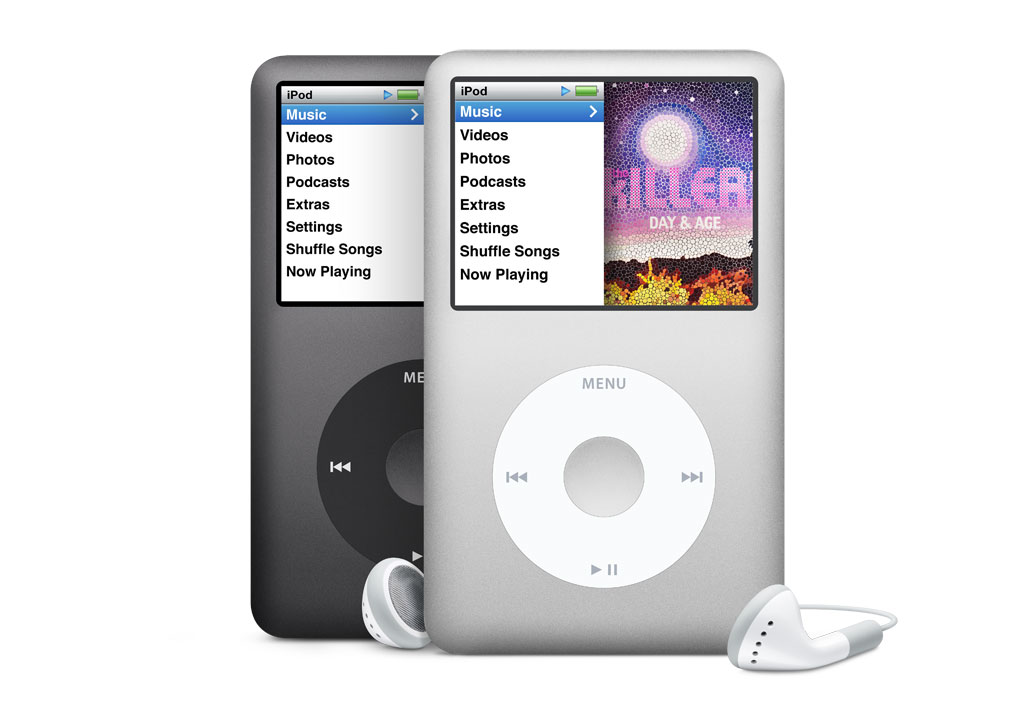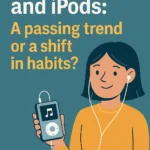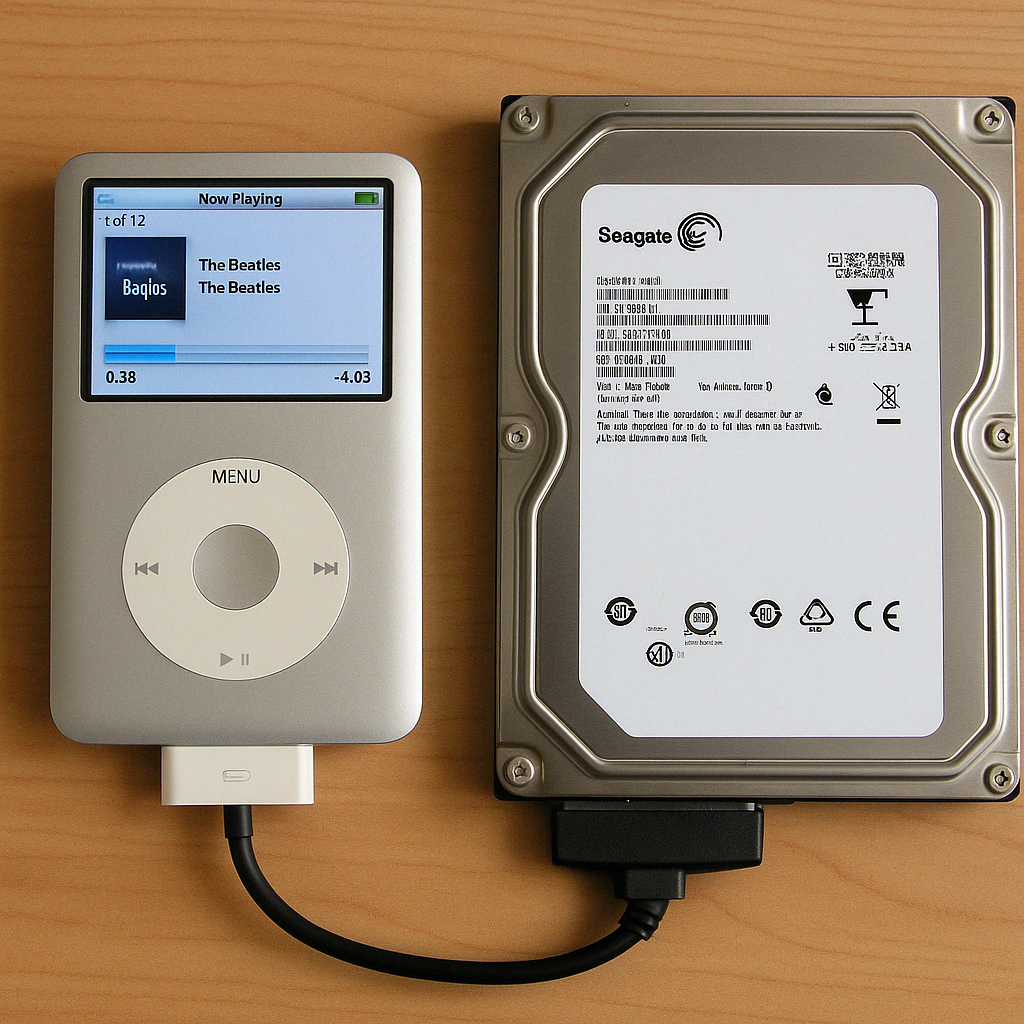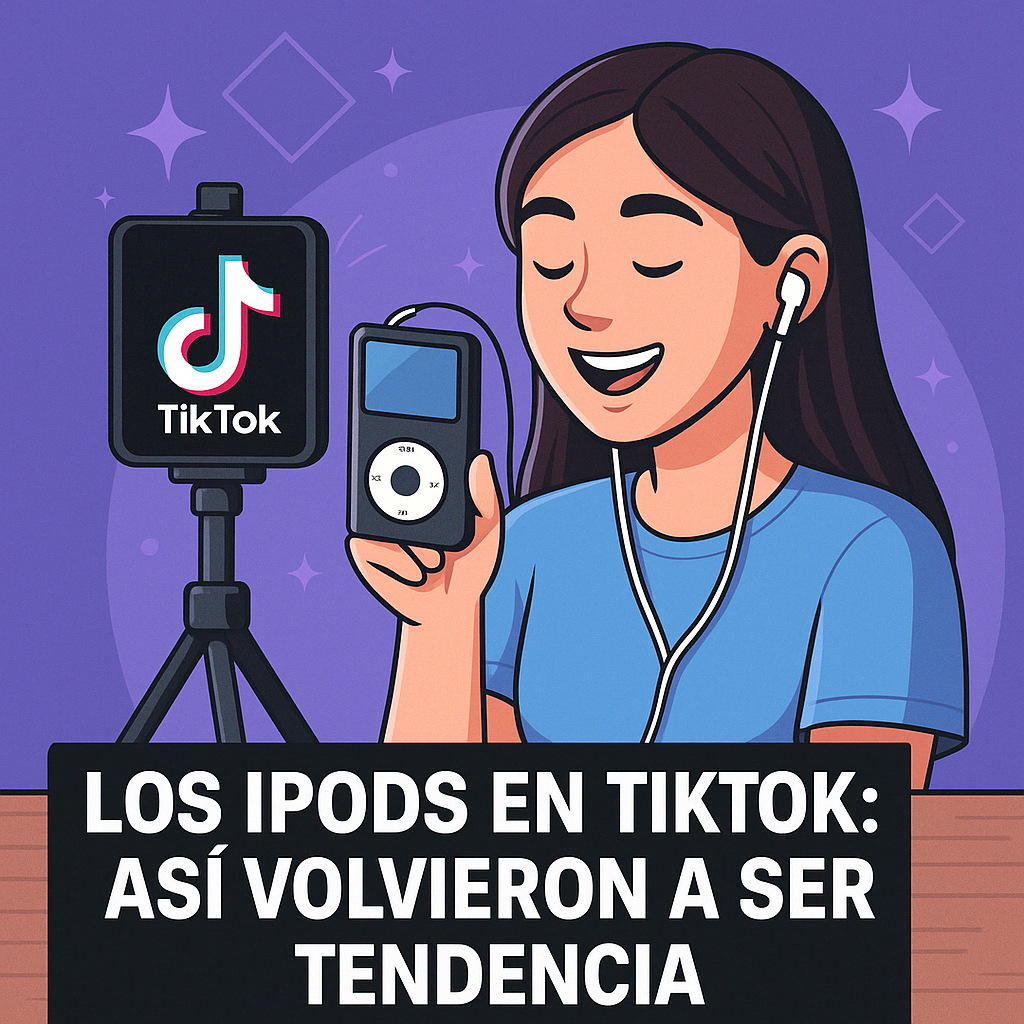Tech Nostalgia: How Did iPods Become Popular Again?
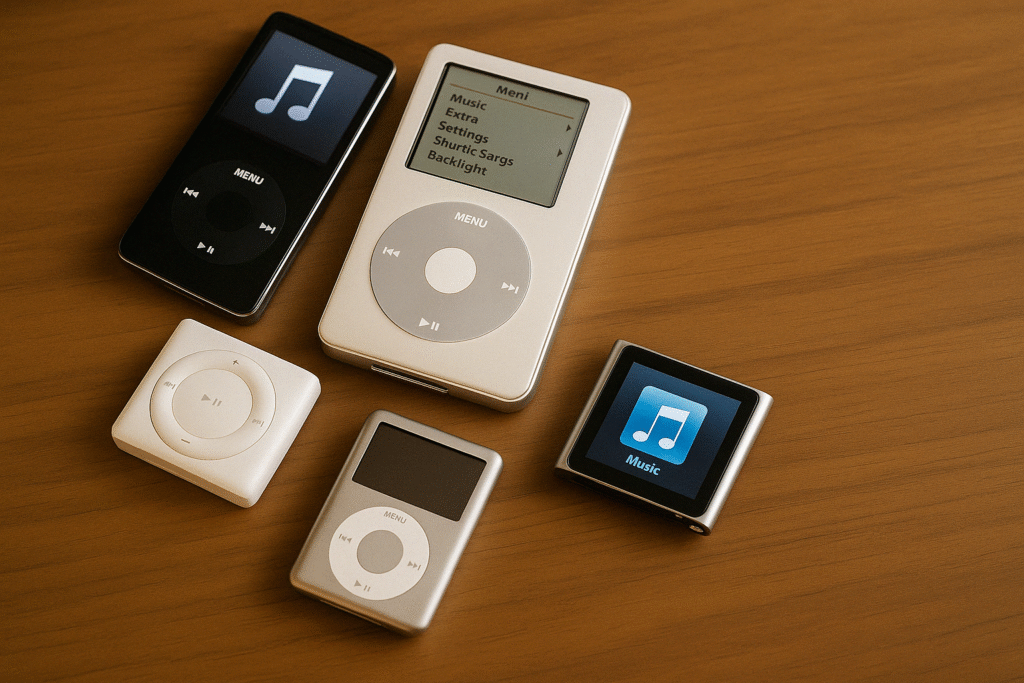
Many of us remember with a smile those moments when you put on your headphones, turned on your iPod, closed your eyes, and immersed yourself in your favorite music. There were no notifications, no messages, no interruptions: just you and your songs. The only worry was knowing what track would come next.
The iPod, that small but powerful Apple music player, was everything we needed to be happy. Its comfortable design, intuitive interface, and portability made it an icon of its time. Today, in the middle of 2025, this device is back on everyone's lips. An unexpected phenomenon driven by nostalgia.
Nostalgia in retro technology
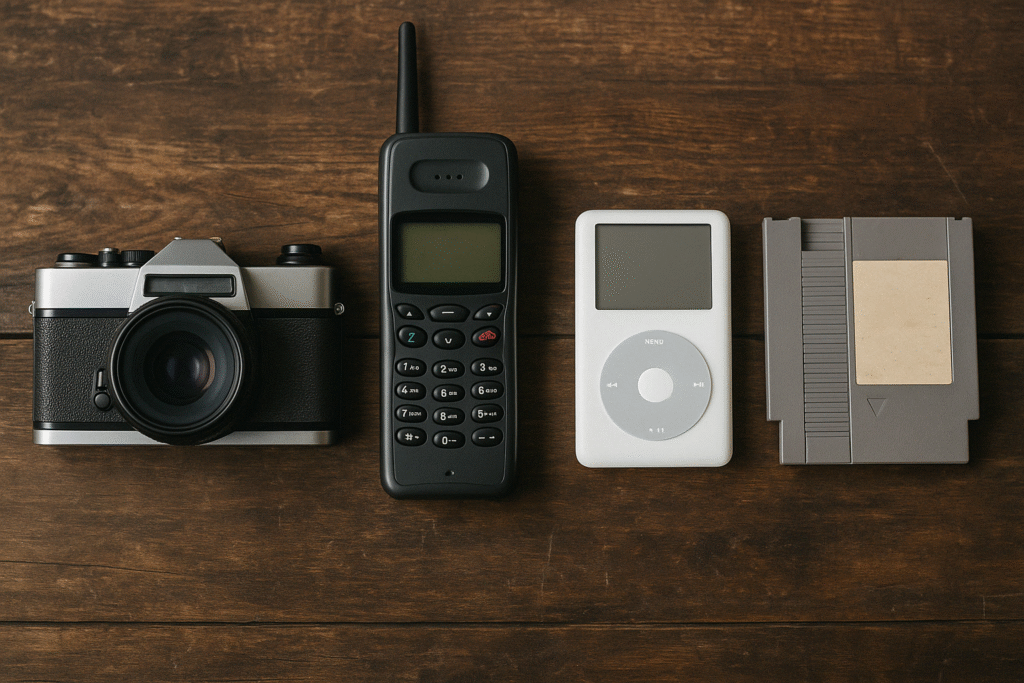
It's curious to see how retro technology has not only stood the test of time, but is actually gaining popularity. Analog cameras, old video game consoles, classic cell phones with physical buttons... they're all making a strong comeback, driven by a mix of nostalgia and a desire to reconnect with simplicity.
The iPod is no exception. Although it was released more than 20 years ago, it's now a trend, especially among millennials and Generation Z. Social media platforms like TikTok, Instagram, and YouTube are filled with videos where users show off their refurbished iPods, customize them, try them out, or simply share memories.
For many, these devices represent a form of escape from today's hyper-connected world. It's no longer just about playing music, but about experience again The feeling of having a device dedicated exclusively to a single task. That, in an age of multitasking and constant notifications, is more valuable than it seems.
Why are iPods back in fashion?
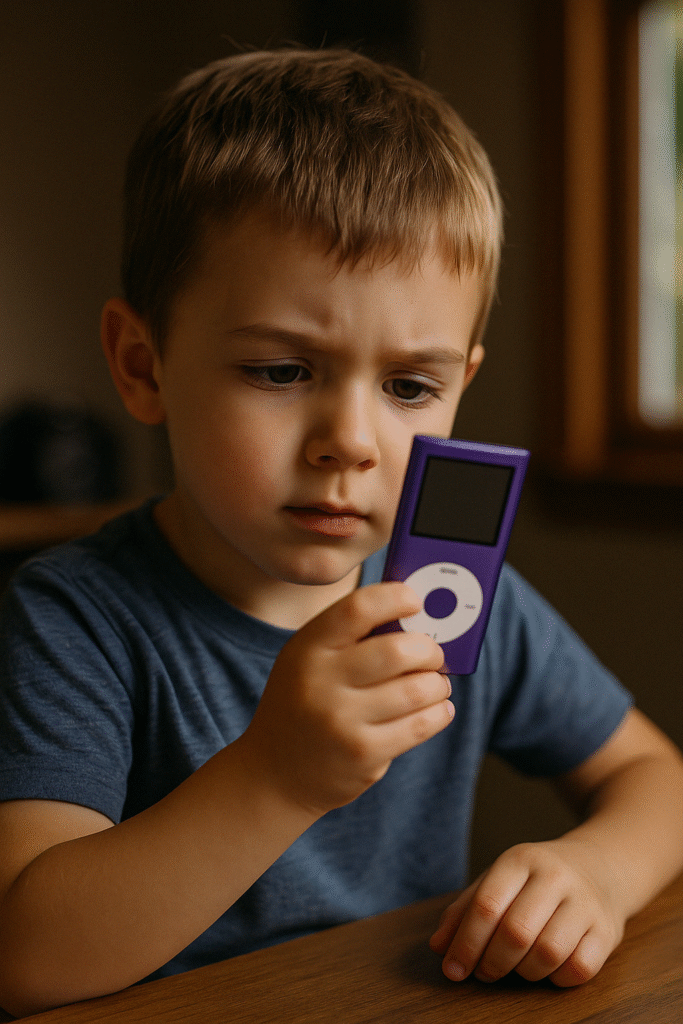
One of the main drivers of this comeback is the younger generation. Seeing these products in viral videos or influencer posts, they're curious to discover what made such a simple device so special.
Millennials, on the other hand, are rediscovering their old iPods and sharing the experience. In many cases, they're repairing them, replacing the batteries, adding Bluetooth connectivity, or even installing SSDs for more space and speed.
This type of content has exploded on YouTube, TikTok, and Facebook channels. The concept of "reviving your iPod" has gone viral, with tutorials showing everything from restoring the case to installing custom firmware.
There's also an aesthetic reason. iPods have a minimalist design that remains attractive. Some even wear them as fashion accessories: hanging around their necks, decorated with stickers, or inside transparent cases. In a world where customization is key, the iPod offers a canvas for retro creativity.
We seek to connect in a simple way
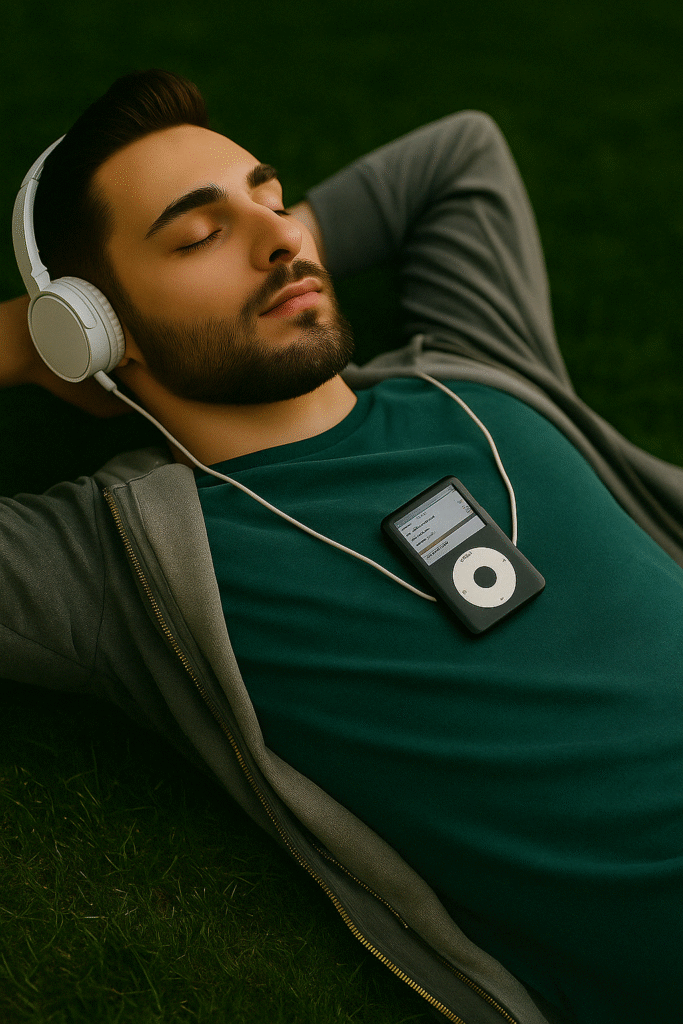
For some, all of this may be nothing more than a passing fad. But it's also possible that we're witnessing a shift in the way we consume technology. Today, more than ever, we're saturated with screens, messages, alerts, tasks, and social media. Having a device like the iPod is a way to disconnect from the chaos and get back to the basics: listening to music.
The rise of the iPod might not be an isolated event. Just as these devices are reviving today, other technologies that allow us to enjoy them could return tomorrow. live with less noise and more focus. Generation Z is interested in the past, not out of romanticism, but out of exploration. They want to know what everything was like before smartphones, to experience for themselves that sense of simplicity that many adults fondly recall.
There's also a powerful emotional component: music. With an iPod, the experience becomes intentional. It's not about skipping from song to song on Spotify while receiving WhatsApp messages. It's about choosing your songs, organizing them into folders, and listening to them without interruption. It's a form of musical mindfulness.
Conclusion
The return of iPods in 2025 is no coincidence. It's a reflection of a generation seeking authenticity, focus, and a more real connection with technology. It's a way to rebel against hyperconnectivity and reconnect with an experience that, while simple, is tremendously meaningful.
The iPod isn't coming back because it's better than today's cell phones. It's coming back because reminds us that we don't always have to have everything on one deviceSometimes, it's best to have something that does one thing, but does it very well.
Tell me, would you join this retro wave?

